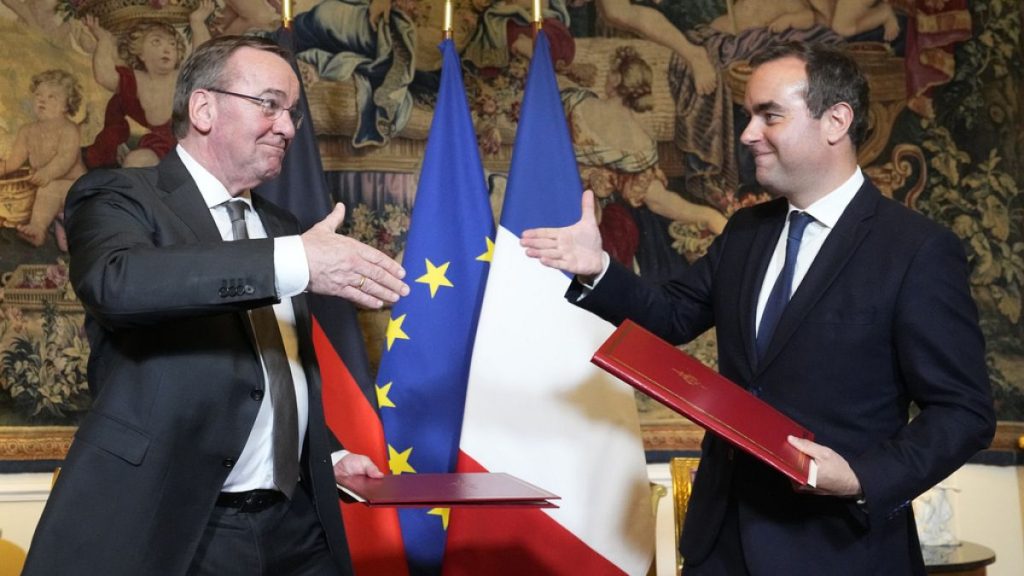The defence ministers of France and Germany met in Paris to ratify an agreement on a new joint tank project called the Main Ground Combat System (MGCS), worth billions of euros. This project is set to develop the first phase of the next-generation battle tank, designed to replace Germany’s Leopard 2 tank and France’s Leclerc. While the tank will incorporate artificial intelligence and automated systems that do not require human intervention, the ministers emphasized that it is not a new model of the Leopard 2 tank but rather a completely new design. The goal is to have the tank completed by 2040, showcasing Europe’s expansion in the defence industry to compete with countries like India and China.
The distribution of contracts for manufacturers involved in the MGCS project is set to be finalized by the end of the year, with Germany leading the development of the tank and France taking the lead in developing the FCAS fighter jet. Both countries will share the price tag for the tank, with companies like KNDS, Rheinmetall, and Thales likely to be involved in its construction. Despite previous disagreements and tensions between France and Germany on topics such as energy transition, the ministers expressed mutual trust in the common accord, emphasizing the importance of the partnership in the current geopolitical context. This deal demonstrates how European countries are collaborating on major arms industry projects to enhance their military capabilities.
The development of the next-generation battle tank under the MGCS project reflects a strategic effort by France and Germany to modernize their armed forces and maintain a competitive edge in military technology. With a focus on innovation, the tank will feature advanced capabilities such as artificial intelligence and automated systems, setting it apart from existing models like the Leopard 2 tank. The project highlights the commitment of both countries to invest in cutting-edge defence technology to address evolving security challenges and enhance their defence capabilities for the future.
The partnership between France and Germany in the MGCS project is part of a larger plan to strengthen European defence cooperation and build a more integrated defence industry. In addition to the tank project, both countries are collaborating on the development of the FCAS fighter jet and other defence initiatives to enhance their military capabilities. By working together on major arms industry projects, France and Germany aim to foster greater cooperation and interoperability within the European defence sector, while also reducing duplication and inefficiencies in defence procurement. This strategic partnership underscores the importance of European countries coming together to address common security challenges and strengthen their collective defence capabilities.
The MGCS project represents a significant milestone in Franco-German defence cooperation and underscores the commitment of both countries to developing cutting-edge military technology. The new battle tank, which is expected to be completed by 2040, will incorporate advanced features such as artificial intelligence and automated systems to enhance its combat capabilities. By collaborating on major arms industry projects like the MGCS, France and Germany are demonstrating their willingness to invest in future-oriented defence capabilities and maintain a competitive edge in military technology. This partnership is a testament to the strong and enduring relationship between France and Germany, as well as their shared commitment to advancing European defence cooperation and strengthening the continent’s defence industry.
In conclusion, the MGCS project between France and Germany represents a significant step forward in European defence cooperation and underscores the importance of collaborative efforts in developing advanced military technology. By pooling their resources and expertise, France and Germany are able to enhance their defence capabilities and maintain a competitive edge in an evolving security environment. The new next-generation battle tank developed under the MGCS project is a testament to the commitment of both countries to invest in cutting-edge defence technology and address emerging security challenges. This partnership not only strengthens Franco-German cooperation but also contributes to the broader goal of building a more integrated and efficient European defence industry.












